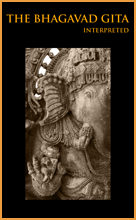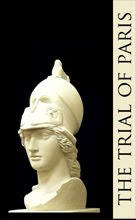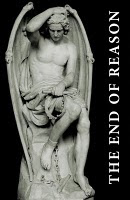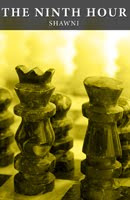With Arjuna’s words sounding in his ears, Krishna’s spirit quickened. He spoke to Arjuna, whose eyes burned with tears, overwhelmed by despair.
Krishna said:
—What shameful words are these, Arjuna? This is the hour of trial. Why do you falter? Your despondent grief enfeebles you; it dishonors you. Slunk in the trenches of despair, you will win neither heaven nor earth.
—Impotence and cowardice are not your way; you wear them poorly. Do not yield to these faults or to this weakness. Rise up and fight!”
Arjuna said:
—How can I fight them, immortal Krishna? Among these enemies are my teachers from earliest youth. How can I cut them down when they deserve only my veneration? It is better to wander in rags, begging for alms, than to sprinkle the bread of my sustenance with their blood.
—Who is to say that their victory over us would be the worse outcome? And if we are victorious over them, what reasons would I have to live, knowing that the luxuries of life were bought at this price?
—I am afflicted with blinding tears and cannot see the straight way, the lawful path. Lead me forward, Krishna. I am your student and you are the most excellent of teachers. Tell me what is best, for I see nothing, even in victory in heaven or on earth, which will dispel my doubts and sorrows.
With these words, Arjuna cried out: —I will not fight! and said nothing more. Krishna smiled, hinting of laughter, and spoke gently to Arjuna as they stood between the two armies.
Krishna said:
—Do not weep tears for them. Though your words are sincere and full of insight, your sorrow profits no one. Tears are wasted on the dead; the wise do not grieve for the living or the dead. For life and death shall pass away.
—In time, we have always been, both you and I and all these kings of men; and we will always be.
—Putting on the body of the child, the youth, the old man, a wise man does not wonder that in death, the Self passes into another body.
—Consider your senses, this illusory world bound up in the body. Burning fire and bitter cold, comfort and discomfort, these come and go; they are ephemeral. Rise above them.
—When you have passed untroubled beyond comfort and discomfort, above delight and misery, you become fit for immortality.
—What is transient is never real. What is eternal never is not. The wise see the clear boundary between these two.
—The eternal that supports this universe cannot be destroyed. Nothing can destroy what is indestructible.
—The eternal Self dwells in bodies, but the Self surpasses all bodies. Bodies die in time, but the Self is everlasting.
—The man who imagines he can kill, and the man who fears he can be killed are both in error. The one who kills does not kill; and the one killed does not die.
—The Self is never born nor does it die. The Self is constant, eternal, untouched by death even when his body dies.
—A pitcher filled with moonlight is broken. Do you mourn the loss of the moon? A mirror reflecting sunlight is shattered. Do you mourn the loss of the sun? So does the body die, but the Self does not die.
—When a man knows the Self, how can he imagine that he kills? How can he imagine that he dies? The body ages, crumbles, ceases to be; but the Self is unborn, ageless, without end, indestructible.
—As a man puts off tattered clothes, and wears something different and new; the Self discards the body, and wears something different and new.
—No sword, no spear, no arrow can deprive the Self of life. Fire cannot scorch him; water cannot drown him; wind cannot make him dry.
—Beyond weapon and fire, beyond water and wind, the Self surpasses all, enduring all unblemished, unmoved, unchanged.
—The Self is unseen, beyond sight; unknown, beyond knowledge; unaltered, beyond alteration; if in wisdom you capture this much, you will not grieve for the loss of what can never be lost.
—Even if you believe that a man is born again and again, and that he dies again and again, you should not grieve, for in death birth is inevitable and in birth death is inevitable.
—Being born, he must die. In death, he is reborn. If you understand this, then you will not grieve for the loss of what can never be lost.
—Before the sun rises, the world is dark. After the sun sets, the world is dark again. Do you mourn each night the death of the sun?
—Before birth, he is unseen. After death, he is unseen again. Between these, you merely see him. For this why do you complain?
—Few perceive him; few speak of him; fewer hear him. Even hearing him, no one truly knows him.
—Within every body, the inviolable Self resides. Therefore, do not grieve for the death of any of them. The Self resides beyond death.
—Do your duty, Arjuna. Act without hesitation. For the warrior, the greatest good is righteous war against an evil enemy.
—A righteous war opens the doors of heaven for you. Enter therein, Arjuna. Rejoice in good fortune that this battle is joined.
—But if you shrink before this battle or turn your back upon your duty, casting aside honor, this is a grievous transgression.
—Men will recount your shame, dishonor, and disgrace now and in the future. They shall say cowards possess the courage of Arjuna. For one honored, the loss of honor is worse than death.
—Great warriors will accuse you of cowardice; those who once honored you will treat you with contempt.
—Your enemies will rejoice in mocking you. They will laugh and say, “See how Arjuna fled before us, a deer among lions.” Death in battle is better than the mocking derision of enemies.
—If you are defeated and cut down on this field, you gain glory in the next world. If you are victorious, you gain glory in this world. Arise and fight, Arjuna. Glory is upon you.
—Be detached from happiness and unhappiness, gain or loss, victory or defeat. Be resolved to fight, or you will fall into error. Glory is upon you.
—These are the words of belief. Now hear my words of practice, of sacred action. Understand this practice and you will break the bonds of action.
—On the path of this practice, no exertion or effort is wasted or lost. Even a single step upon this path is liberation from fear.
—On this path, the follower is resolved and finds singleness of purpose. But those who lack purpose wander lost on many endless roads.
—In flowery words, unenlightened men take refuge. They know only the letter of the Vedas and say, “There is only this!”
—Driven by appetite, their heaven is a selfish hunger. Fervently they pray to sate their hunger, but gain only death in rebirth to selfish appetite.
—They delight in their desires for pleasure and power, seeking these in scriptures. But they lack purpose and wander without end.
—The world of the Vedas, their rites and prayers for prosperity, is the world of desire and attachment. Rise above duality; give up the transient world and its possessions and possess your Self.
—The world of the Vedas are a droplet of water to the man who drinks deeply of the Self.
—Engage in action, but never in self-interest. Give up all rewards, but never give up action.
—In the field of action, there is peace, free from selfish attachments, unmoved by success or failure. This peace balances the mind; it is unchanging.
—If you act to achieve your desires, such action will deprive you of wisdom or salvation from attachments. Such action impoverishes the one seeking worldly riches.
—Understanding this, a man vanquishes anxiety. He is untroubled whether work ends well or ends poorly. Become wise, therefore, by renouncing the fruits of action.
—The wise man, relinquishing actions’ rewards, becoming free from attachment, achieves salvation from the bonds of this world and acquires perfect bliss.
—Emerging from the wilds of delusion and duality, you will perceive the difference between what men suppose is true, and Truth itself.
—Long troubled by the contradictions in scriptures, you will rise above these words, you will achieve certitude in contemplation. This is the goal.
Arjuna said:
—The man who achieves this goal, who achieves certitude in contemplation; what is he like? What does he say? What is his manner?
Krishna said:
—The one who relinquishes the fruits of action, who gives up all desires, who sunders the bonds of attachment to all things he achieves oneness with the Supreme.
—He is one at peace, not longing for pleasure, untroubled by sadness, untouched by lust, by fear or anger. His mind is steady.
—He is one free from attachments, neither broken-hearted by evil fortune nor elated by good fortune. He is wise, serene. His insight is unwavering.
—As the tortoise draws in his limbs, so does he withdraw his senses from the world of desires.
—The disciple renounces sensual pleasure, but still he craves what he desires. He is like one who fasts, but longs for food. But his desires vanish when he achieves oneness with the Supreme.
—The senses are restless; they drive even the wisest from achieving freedom from the bondage of attachment.
—But let him be devoted to me, turning his mind toward me to banish all longings, to seek shelter in me, to command his senses.
—The man who seeks shelter in sensual pleasures is lured away from me. The snares of desire, of lust for possession lead to frustration.
—Unmastered passion troubles his mind, clouds duty, disarms reason, and leads a man to ruin.
—The one who has mastery over passion, keeps aloof from attachment. He has found harmony and peace.
—He throws off the yoke of sorrows and finds quietude, untroubled peace in the shelter of the Self.
—The one driven by desire is driven away from harmony and contemplation. Here there is no peace, and without peace, there is no contentment.
—As a storm on the sea drive ships off course, man’s unmastered passions carry him away from insight.
—But insight is firm in the man who draws in his senses from attachments and desires.
—For him, what is darkness to other creatures is his glorious daylight, and what is day to other creatures, is the darkness of their ignorance and vain imaginings.
—All rivers feed the sea, but the sea is never overfilled. Likewise, for the enlightened man, the rivers of desire never overwhelm the calm waters of his peace. But this is not so for the unenlightened, drowning in the desire for desires.
—The man who renounces possession, is unmoved by desire, is unselfish in thought and act, he achieves the most supreme peace.
—O Arjuna, this is man’s eternal Self. Finding him destroys delusion. Even in his final exhalation, man can reach the Supreme, can achieve the Nirvana of Brahman.
Subscribe to:
Post Comments (Atom)






No comments:
Post a Comment